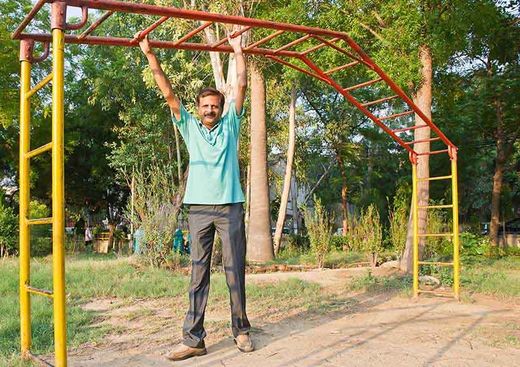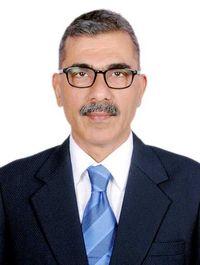You cannot help but feel vulnerable when you are in a doctor’s cabin. A sense of helplessness engulfs you, anxiety levels mount and your mouth goes dry as the doctor goes through the report and gives the prognosis. There was a time when that was the last word, when seeking clarifications from the doctor or consulting another doctor for a second opinion was unheard of. But nowadays, notes are made and online research on the condition is the first thing you do when you step out of the clinic.
While we trust our doctors, there is no harm in seeking clarifications or opting for a second opinion. Now if you are advised surgery, doubts and fears are natural. Getting these cleared and seeking another expert's opinion will go a long way in helping the patients and their loved ones take an informed decision.
The number of diseases and people afflicted by them has gone up drastically. Rephrasing it, awareness is growing and more people are seeking medical help. With the number of patients growing, most doctors move from one patient to the next in a matter of just a few minutes. Patients then turn to alternative sources of information to clear doubts.

While we may have become more proactive as patients, having a trusted doctor who offers proper guidance is important. Especially when it comes to interventional procedures. Mention surgery and most of us are still consumed by a sense of forboding. Lying on the cold operation table not knowing what lay ahead is certainly not a pleasant experience. So, along with consulting a trusted specialist, knowing what to ask the doctor is equally crucial.
We asked surgeons across specialities the questions they wished their patients would ask them before and after surgery.
First, the patient must ask: Is the surgery required? A doctor who recommends a surgery should have compelling reasons to do so while the patient must know why the doctor picked surgery over non-invasive methods.
The doctor should explain the steps involved in the surgery, the techniques that could be used and why he favours one technique over the other.
One may ask if it is wise to overburden the patient with such details. All over the world, there is growing evidence of un-indicated (unnecessary) surgeries being performed. According to a study published in Arthritis & Rheumatology, almost one-third of knee replacement surgeries done in the US last year were unnecessary. Recently, MediAngels, a Mumbai-based medical second opinion services centre, came out with interesting statistics after analysing its consultation cases in the past two years. It found out that almost 44 per cent of 12,500 patients who were recommended surgery were advised against it by their second opinion consultants.
“Ask the surgeon if there are alternatives to the surgery,” says Dr Rakesh Sinha, consultant gynaecology-endoscopy surgeon at Beams Hospital in Mumbai. “Surgeons often don’t give options unless they are asked.”
Even when a doctor has given the diagnosis, patients have the right to consult another specialist and take his opinion, a common practice in several countries, before deciding the course of action. “While seeking a second opinion, go to a doctor from non-surgical branches of medicine and ask about alternative options,” says Dr Pushkar Shikarkhane, consulting physician in Mumbai. Before taking a second opinion, make sure you are going for the best available option.
Apul Kumar Agarwal, 46, had recurrent fever and headaches over the past five months. None of the many doctors he consulted could diagnose his condition. “Last month, I went to a local doctor who diagnosed me with typhoid and I was bedridden for a month, but there was no improvement,” he says.
Agarwal then met Dr Randeep Wadhawan, director and head of minimal access, gastrointestinal and bariatric surgery at Fortis Hospital in New Delhi, who ordered some tests. The results revealed that he had multiple stones in his gall bladder. The doctor suggested it be removed. Gall bladder removal is one of the most commonly performed surgeries, but Agarwal was worried.
 Informed choice: When Apul Kumar Agarwal had to undergo a gall bladder surgery, he discussed his concerns with the surgeon, who reassured him about the merits of the procedure | Sanjay Ahlawat
Informed choice: When Apul Kumar Agarwal had to undergo a gall bladder surgery, he discussed his concerns with the surgeon, who reassured him about the merits of the procedure | Sanjay Ahlawat
“Be it a big or a small surgery, it is always a little scary,” says Agarwal, who was also worried about the likely impact of the surgery on his digestion. He shared his concerns with the doctor. “He told me there was nothing to fear,” says Agarwal. “The removal of gall bladder does not affect digestion and there would not be any side-effects of the surgery. The only thing I have to do is keep away from fried food.”
He also read up about the condition and the surgery on the internet. Satisfied with what he found, Agarwal underwent surgery last month. “I feel much better now and my fever is gone,” he says.
According to experts, it is always better to get the procedure done by a specialist. For example, if it is a knee replacement, it is better to approach an orthopaedic surgeon who has done the most number of knee replacements. Also, check the surgeon's credentials. “Remember, the most famous surgeon may not be the best one,” says Sinha.
Ask the surgeon about the major hospitals he is attached to, the number of peer reviewed articles he has published, similar surgeries he has performed in the past, their success rate, and if he is willing to share the references of the patients he treated, says Dr Nilen Shah, orthopaedic surgeon at Wockhardt Hospital, Mumbai. “What matters ultimately is the trust factor. Do you feel confident about the surgeon? If yes, select him, if not, no amount of research will reassure you of the outcome,” says Wadhawan.
Once convinced that surgery is the best option, the patient should gather as much information about the procedure as possible in terms of benefits, risks and possible complications. The doctors do the surgery not because there are no risks involved but because its benefits are greater than the risks, says Dr Anvay Mulay, consultant and head, cardiac surgery at Fortis Hospital in Mumbai. He gives the example of three treatment options—medication, angioplasty and bypass surgery—post-heart attack that have their pros and cons, but none provides cure. “Patients should be completely open with the surgeon and give a detailed medical history along with a list of medications that they are taking as well as allergies,” says Dr M. Balamurugan, consultant neurosurgeon at Apollo Hospitals in Chennai.

Most surgeries are considered to be safe, with low rates of complications, but interventional procedures still should be taken seriously. “Even 1 per cent risk of mortality could mean everything if you or your family member is that one in 100 who doesn’t survive the procedure,” says Dr Debraj Shome, facial plastic surgeon and co-founder of MediAngels. Shome discusses the side-effects and complications in detail with his patients.
Many doctors feel that while patients cherry-pick their surgeons, they pay little attention to the details of the hospital where the surgery will be conducted. Some of the aspects that make a difference are the hygiene levels, behaviour of the staff and the infrastructure of the surgical unit where the patient will be kept before and after the surgery. “Ask questions about what the surgeon would do in the case of emergencies,” says Dr Mohan Thomas, senior cosmetic surgeon at Cosmetic Surgery Institute and Breach Candy Hospital, Mumbai. “Do they have intensive care units in the hospital? How do they plan to transfer patients to other centres when the need arises?”
Patients should ask the surgeon about the kind of anaesthesia to be administered, how it will be administered and the monitoring system. Also, ask about the anaesthetist and whether he specialises in the procedure, if it is a specialised one like bariatric surgery. Who will perform the surgery, the surgeon himself, his teammates or an outsider, the patient should ask. “In many cases, ‘ghost’ surgeons are invited to the hospital to perform a procedure without the knowledge or consent of the patient,” says Sinha.
 Left in a lurch: Thryza Dow of Mumbai underwent a laparoscopic surgery a few months ago. Her surgeon, however, did not tell her about what to expect post surgery | Janak Bhat
Left in a lurch: Thryza Dow of Mumbai underwent a laparoscopic surgery a few months ago. Her surgeon, however, did not tell her about what to expect post surgery | Janak Bhat
What determines the success of the surgery is whether the outcome matches expectation. “One of the most important jobs of a surgeon is expectation management,” says Shome. Consider a situation where the surgery is successful but the patient is not happy with the result—all the more reason why a surgeon must give the patient a realistic idea of the outcome. “It is as important, if not more for the doctors, to possess good communication skills along with good surgical skills” says Shome.
Thryza Dow of Mumbai underwent a laparoscopic surgery a few months ago to remove ovarian cysts. Though the procedure was a success, Dow is unhappy that her surgeon didn't tell her what to expect post surgery though they had a lengthy discussion about the procedure. “After the surgery, my stomach was swollen and distorted for three weeks, and I was in pain but because my surgeon didn't discuss it with me before, I was very anxious and stressed out. I didn’t know if it was normal or something to be worried about,” says Dow, 30, who is senior relationship manager in a non-profit organisation.
Dow, however, knew what to expect when her son underwent an operation to correct his squint. A week before the surgery, the surgeon shared details about the procedure like the muscle that would be operated on, the kind of anaesthesia the child would be given, the time he would take to regain consciousness and the pain the child would feel. “His surgery thus went off smoothly and we were in control,” says Dow.
Once upon a time, doctors were revered. They were trusted implicitly and expected to provide better treatment and service. Over the years the way patients interact with their doctors has undergone a radical shift, at least in the urban areas, as they have information at their fingertips. So, the doctors need to drop their paternalistic attitude towards patients and become more transparent and communicative, says Amar Jesani, independent researcher and teacher of bioethics and public health. “The doctors and the health care system should be looking to gain the trust of their patients through respect and by making them understand the health condition, options available for treatment and by sensitive personalised interaction,” he says. “Such an approach would encourage the patients to be more proactive, feel confident in asking even 'stupid' questions, and understand and feel less anxious.”
Transplant surgery
Prioritise quality of life
Ask about alternatives to the surgery and the window period for the transplant, but one must carefully consider its outcome, too. “He must ask the surgeon about life post surgery,” says Prof Mohammed Rela, liver transplant surgeon and group director, Institute of Liver Diseases, HPB Surgery and Transplantation, Global Hospital, Hyderabad. “Will he be able to live a normal life? Will he need to take medicines throughout his life and what are its side-effects?”
 Prof Mohammed Rela
Prof Mohammed Rela
Since transplant patients are put on immunosuppressant drugs, they are prone to infections. So they need to watch what they eat and how they live. “Transplant increases the chances of certain kinds of cancer like lymphomas, and immunosuppressant drugs also affect kidney function,” says Rela. It does not affect the patient's fertility, though.
While follow-ups are more regular in the initial few months after the transplant, patients need to get an annual check-up done after that.
Children preparing for a transplant surgery should be given basic vaccinations before the procedure; they should not take live vaccines post surgery. “Otherwise, children who have undergone transplants have the same kind of growth and development and can play like other normal kids,” says Rela.
Knee replacement surgery
Get the right fit
Not every patient who has arthritis of the knee needs a replacement. Surgery is indicated when conservative treatments fail and functional disability is significant, says Dr Kaushal Malhan, knee and hip surgeon at Fortis Hospital in Mumbai. “The decision to do a knee replacement surgery is not simply made on the basis of an X-ray picture,” he says. “It is a complex decision made on the basis of clinical condition of the knee, functional requirements, overall physiologic status and mechanical knee damage. The result after surgery is directly proportional to the correct choice of patient and procedure. This aspect is as important as good surgical technique for a satisfactory result.”
 Dr Kaushal Malhan
Dr Kaushal Malhan
Before going for knee replacement, discuss the pros and cons of the procedure, the implant that would be used, its history as well as the technique. In knee replacement, alignment and positioning of the implants are important. “A poorly aligned knee replacement may allow good function, running and full knee bending, but may end up with early wear of the components and need for revision,” says Malhan, who prefers computer navigated techniques over conventional methods as they enable real-time checks for alignment of components. The computer constantly informs the surgeon about the position of the alignment and gives near-perfect result.
Also, instead of replacing the entire tissue, there are tissue-preserving techniques that allow better results for the patients without damaging the existing tissue, says Malhan. With more patients demanding the latest techniques, orthopaedic surgeons are bound to use better techniques.
Liposuction
Avoid shortcuts
 Dr Mohan Thomas
Dr Mohan Thomas
Liposuction is a popular cosmetic surgery that involves removal of fat cells from a particular part of the body that is not responding to diet and exercise. The safety and efficacy of the procedure and longevity of the outcome depend on the patient's effort to be well-informed. Since it is a cosmetic surgery, patients should ask themselves if they really want it, and understand the associated complications which may arise occasionally, says Dr Mohan Thomas, senior cosmetic surgeon, Cosmetic Surgery Institute and Breach Candy Hospital, Mumbai.
Many cosmetic surgery centres mention the names of celebrities who have undergone the surgery or advertise inexpensive surgery packages in the media. It is a very dangerous trend in the Indian diaspora as Indians like bargains, says Thomas.
They may also use terms like 'non-surgical liposuction' to confuse the patient and give them unrealistic hope. Patients should steer clear of surgeons who hardsell the surgery and do not communicate clearly with them, says Thomas.
Don't pick a surgeon on the basis of his fees or his willingness to cut corners on the treatment and compromise on safety. “Liposuction of more than 5 litres in a single sitting needs to be avoided since it is fraught with risks,” says Thomas.
Cataract surgery
Medical history matters
 Prof Dr S. Natarajan
Prof Dr S. Natarajan
Cataract surgery, which involves removal of the affected lens under local anaesthesia or topical anaesthesia and replacing it with intraocular lens, is considered to be a fairly straightforward surgery, with very low complication rate. “Even though it is a common procedure, cataract surgery is still a surgery and there are risks involved as with all surgeries,” says Prof Dr S. Natarajan, ophthalmic and vitreo retinal surgeon and executive chairman and managing director of Aditya Jyot Eye Hospital in Mumbai.
Patients with a medical history of diabetes or myopia need to understand that if they develop any retinal complications because of their pathology, their vision may not improve beyond a certain point because of the damage already done to the retina. Also, those who have a family history of glaucoma and retina detachment have an additional risk. Giving a clear idea of your family and medical history before a surgery is, therefore, very important.
“Patients should ask the surgeon about the lens to be used, the cost of the lens and also the technique he would be using,” says Natarajan. Post surgery, patients must follow the doctor's instructions and protect the eye from infections.
Bariatric and metabolic surgeries
Rule out complications
Before opting for bariatric surgery, check if the patient meets the criteria. Those with a body mass index of more than 37.5, or 32.5 with co-morbidities like diabetes, hypertension, high cholesterol levels, pain in the joints and sleeping disorders are eligible to be considered for a bariatric surgery, says Dr Pradeep Chowbey, chairman, Max Institute of Minimal Access, Metabolic and Bariatric Surgery and former president of Obesity and Metabolic Surgery Society of India.
It has been documented that high-volume centres and those certified as centres of excellence—where specialised teams perform the surgeries and the centres have the infrastructure to deal with the likely complications—have far better patient outcome as compared to the low-volume centres.
“The rate of complications in bariatric surgeries in a centre of excellence is less than 0.1 per cent, which could be as high as 5 per cent in low-volume centres,” says Chowbey. Unfortunately, the surgery is caught in a cost war because of the substandard staplers and equipment used at many facilities, which could lead to complications. Hence, cost should not be the criteria for selecting the centre. Post surgery, patients need to be informed about their daily supplements and the yearly follow-ups.
Hysterectomy
Surgery should be the last option
Hysterectomy is the surgical removal of the uterus. The common indications are uterine fibroids, endometriosis, vaginal bleeding, cancers of the cervix, ovaries or uterus and pelvic pain. “I see at least one patient every week who has been recommended to undergo a hysterectomy but does not need it,” says Dr Duru Shah, consultant obstetrician and gynaecologist and director of Gynaecworld clinic, Mumbai.
 Dr Duru Shah
Dr Duru Shah
There are various reasons for excessive bleeding, says Shah, like hypertension, thyroid and hormonal dysfunction, but instead of treating these conditions, many surgeons simply recommend hysterectomy.
“It is known that hysterectomy leads to menopause, preponing it by at least two to three years,” she says. “This leads to premature ageing and it takes away the protection provided by female hormones. This is why, hysterectomy needs to be well indicated.”
Even though it is a low-risk surgery, the risks associated with hysterectomy are similar to those of any other surgery. “There are many minimal surgical procedures and newer drugs available, which could control the problem of bleeding,” she says. “It would be worth trying those out [first]. Hysterectomy should be reserved only for those situations where no other therapy would help, such as cancer.”
Coronary bypass surgery
Weigh the benefits and risks
 Dr Sanjeev Vichare
Dr Sanjeev Vichare
During a coronary bypass surgery, a blocked or damaged artery in the heart is bypassed with a graft blood vessel from another part of the body. The decision to conduct a bypass surgery should be done only after weighing the benefits and risks of the surgery with other alternatives like angioplasty and medication, says Dr Sanjeev Vichare, cardiothoracic surgeon at Jaslok Hospital, Mumbai. When and how soon the surgery should be done depends on the state of the patient's heart.
“Every patient is different and every vessel is different. So even though the average rate of complication is one per cent, it changes if the patient has other morbidities like stroke, kidney failure and asthma,” he says.
The risk of infection post surgery usually lasts till the patient is in the hospital. “On an average, a patient can return to work after one and a half months post surgery but has to refrain from lifting heavy objects and avoid stressful activities for two to three months, after which he can lead a normal life,” says Vichare. After the surgery, patients must monitor their blood sugar and blood pressure, and take medicines regularly and exercise, to prevent further damage to the heart.








